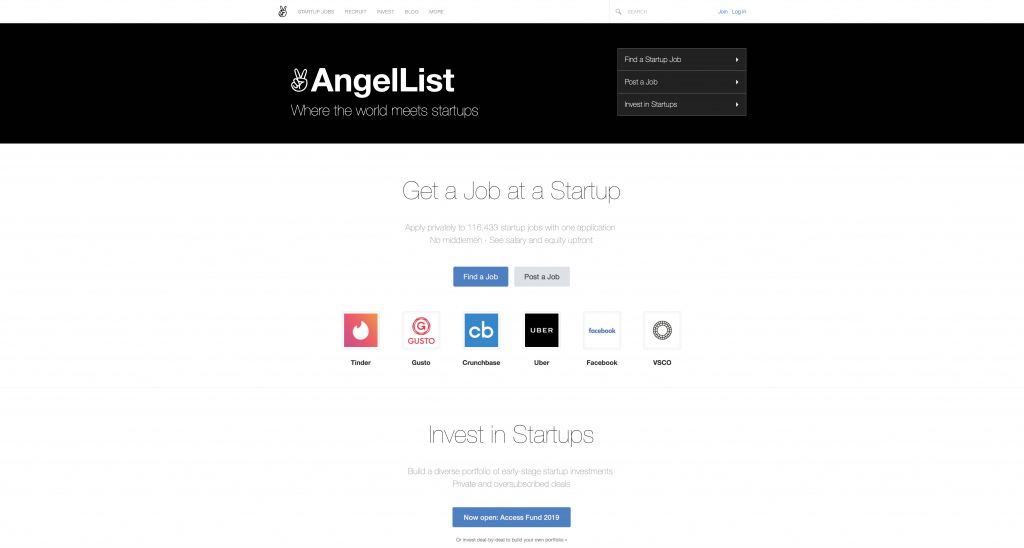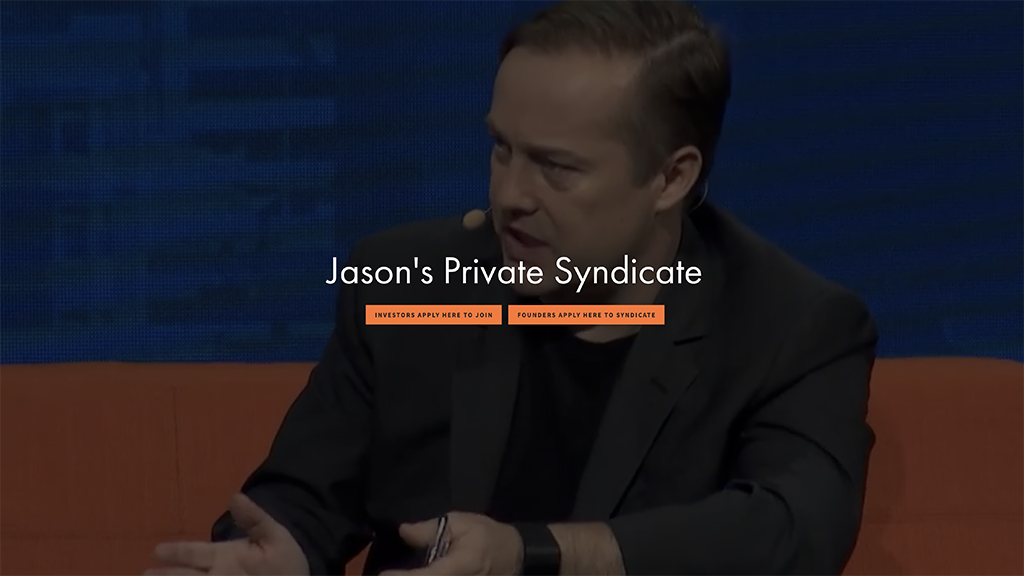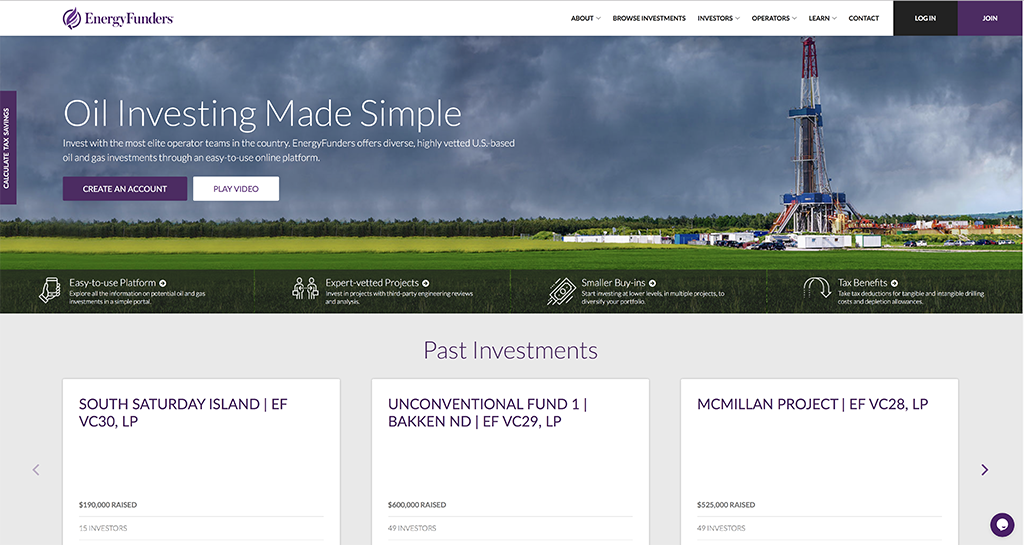Private startup investing waited until 2012 to embrace doing business online. That’s when MicroVentures, FundersClub and AngelList started offering accredited investors – those who make $200,000 a year individually or $300,000 as a couple OR those who have a net worth of $1 million (excluding a primary home) – the ability to invest online.
Now, it’s one of the most exciting and satisfying spaces in investing. And that’s why I put this guide together – to teach accredited investors about the amazing startup investments available to them online today. I will also show you how to invest alongside top angel investors and venture capitalists (VCs) in some of the hottest startup deals on the planet.
Since 2012, private startup investing has grown into a large and mature ecosystem. The quality of “deal flow” on the sites I’m going to introduce you to is extremely high. I have been investing in these types of deals online since 2014, and I know the space intimately. Just this year I have invested in deals alongside legendary venture capital firms, such as Andreessen Horowitz, Bain Capital Ventures and Founders Fund.
Since I began investing online, I’ve personally invested early in two companies that have gone on to become “unicorns” (billion-dollar startups), and I expect another three or four to follow soon. Both of my current unicorn investments, Cabify and FabFitFun, were made on a site called AngelList, which I’m going to tell you more about shortly.
There is something immensely satisfying about investing in a company when it’s tiny and watching it grow into a billion-dollar company within a few short years. If that sounds appealing to you, read on to learn all about becoming an online angel investor.
The Basics
Startup investing offers high risk and high reward. The companies are not yet established, so they carry more risk and bigger potential than established ones. If you select carefully and follow the advice in this guide, I believe you’ll have an excellent chance at landing a unicorn yourself.
However, it’s important to realize that these investments are not “liquid” (meaning they cannot be sold easily). You should expect to hold on to these investments for at least five years, and likely longer.
This lack of liquidity may seem like a downside, but in my view, it’s actually a good thing. The reason most people don’t do well investing in stocks is that as humans, we tend to buy high and sell low. In the startup investing world, buy-and-hold discipline is enforced automatically.
“Angel investing” refers to investments made in private, early-stage companies (startups).
Angel investments in promising tech companies can generate returns that leave every other asset class in the dust. For example, angels who invested in the first round of Uber made 4,966X when it had its initial public offering (IPO). Of course, that’s a rare one, but it does show what’s possible.

In fact, AngelList was founded by two of the investors in Uber’s “seed” round of funding in 2009 – Naval Ravikant and Babak Nivi. That round valued Uber at just $5 million. Uber was also one of the first companies to list on AngelList back in 2009. But back then, it was just an informational service that connected companies with angels.
Today AngelList is a platform that allows notable angel investors and VCs to share the deals they invest in through what are called “syndicates.” A syndicate is an investment group on AngelList led by an angel or VC. There are some truly amazing syndicates that you, as an accredited investor, can join. I’m going to tell you everything you need to know about this incredible site in this guide and in our video series.
The important thing to realize here is that the network we’re tapping into is full of influential startup investors who have invested early in amazing companies like Uber, Twitter, Lime, Cruise, Cabify, Robinhood, Opendoor and many more. As of 2018, AngelList has listed 23 startup deals that went on to become unicorns.
We’ll talk about AngelList quite a bit because, in my opinion, it’s the single best place to invest in early- and growth-stage startups. It blows away other accredited platforms, such as Crowdfunder. If you’re more interested in later-stage investing, please see our Pre-IPO Profits reports.
Becoming an Angel Is Easier Than Ever
Because only accredited investors are allowed to invest in the vast majority of startup deals, there aren’t many angel investors in the world today. The majority of angels in the U.S. live in the San Francisco Bay Area. Though there are angels in nearly every city, roughly 40% of U.S. early-stage investing still happens in the Bay Area.
But because private startup investing has finally come online, all accredited investors have access to amazing deals. Most people still don’t even know this is possible. We are early adopters, and I believe the rewards are substantial.
The platforms I’m going to introduce you to will allow you to tap into extremely high-quality deals from within the Bay Area and beyond.
Accredited startup investing is a private, secretive world. Due to the structure of U.S. laws, I can’t recommend specific deals to members.
But I can tell you exactly where to find the best deals. So let’s get started.
Why and How It Works
When I explain to most people that you can invest alongside amazing investors through AngelList syndicates, they often ask, “Why would these great investors share their deals with you?”
It’s a savvy question, and luckily there’s a good answer. It’s simple: A syndicate’s “lead investor,” the person who sources the deal, gets 15% of your profits (if there are any). This is called “carried interest,” or simply “carry.” It aligns the incentives of lead investors and syndicate members (you). AngelList collects 5% carry for itself in exchange for hosting the deal and handling logistics. In total, you give up 20% of your potential profits. There is also a small setup fee that’s split between everyone who invests. This fee ranges from 1% to 7%, depending on the size and complexity of the deal.
These are very fair terms, in my view. For a comparison, if you’re investing at a top-tier venture capital firm, you’re likely paying 30% carried interest, plus 2% per year in management fees, and you’d have to be willing and able to write a multimillion-dollar check (compared with a $1,000 check on AngelList).
Other platforms that list early-stage deals for accredited investors, such as MicroVentures and SeedInvest, also charge “carried interest,” and thus have an incentive to provide high-quality deals to their members.
Structure and Funding
These startup deal funds are structured as stand-alone LLCs called “special purpose vehicles” (SPVs), which members pool their money into. Ownership of the LLC is then divided according to investment size. This method makes it possible to allow up to 249 investors and to have low minimum investments ($1,000). The company prefers this because it has to put only one new investor (the SPV) onto its capitalization table (the list of investors).
You can fund investments with an automated clearing house (ACH), or debit, transfer from your bank account or with a wire (but that’s more expensive). You can also keep funds in an AngelList account, which I recommend doing. Some deals come together at the last minute and can’t wait for an ACH transfer, so you’ll miss out unless there are funds in your account.
You will receive a K-1 tax form for every investment you make every year. You’re responsible for filing them at tax time. Occasionally you’ll have a capital gain or loss to report.
The Goal
The goal of early-stage investing is for your companies to reach a “liquidity event,” which means going public through an IPO or being acquired by another company.
Only a small portion of companies will make it all the way to an IPO. But if you invested early, when the company was worth $5 million or $20 million, one IPO is likely all you’ll need to do very well.
The more common liquidity event is an acquisition, which can also be quite profitable. I’ve had around 10 cash exits so far, which ranged from 0.3X (30% of investment was returned) to 5X. I’ve had four exits that were paid out on shares of the acquiring company, and a few of those may turn out to be very profitable down the road.
The smaller but still profitable acquisitions help offset losses from startups that fail. And you should understand going into this that many early-stage investments will fail. It’s the big winners that really drive success. All you need is one or two big winners, which can pay out 100X or more over the long run.
How to Get Accepted Into Great AngelList Syndicates

Once you’ve signed up for an AngelList account, take the time to fully complete your profile. Add all of your professional experience, especially any entrepreneurship. And be sure to add a profile picture to your account.
You’re going to have to apply to syndicate groups, so make sure everything is spelled correctly and presents a good picture of you as an investor. Be sure to include ways you can help portfolio companies. For example, if you’re in sales or business development, mention that you’re happy to offer advice to startups you invest in. Most of the time, you won’t even be called on to help, but the fact that you’re offering will go a long way toward helping you get accepted.
Now you’re ready to apply to a few syndicates. Click on “Find Leads“ in the left-hand navigation bar. Here you will see suggested syndicate groups to join.
When evaluating syndicates, it’s easy to look at the investor’s track record on AngelList. On an investor’s profile page, it will show all their investments. It will also list a “follow-on rate.” This is the percentage of their deals that go on to do another round of funding within two years (raising another round of funding is a positive signal).
Once you join a syndicate, you’ll be invited to invest in its deals. You aren’t obligated or required to invest in all the deals you’re invited to, and you can pass on any you don’t like.
My recommendation is to be selective. But don’t pass on every deal. In order to stay in good standing in a syndicate, you need to invest at least some of the time. And if you want to get invited to the best deals and accepted into the best syndicates, you need to be an active investor on the platform. Syndicate leaders control who gets invited to which deals, and they may not invite you to the best deals if you aren’t active. Some syndicate leads will kick you out for passing on too many deals. Many syndicates have $1,000 minimum investments, so it’s easy to build up your profile activity.
Here are a few syndicates I like to help you get started. I can’t guarantee you’ll be accepted into them, but I do recommend applying once you have an established profile on AngelList.
- Forefront Venture Partners: Founded by my friend Phil Nadel, Forefront is one of the leading syndicates on AngelList. Forefront invests only in companies with excellent traction at a fair price. Investment highlights include Wanderu (Expedia for bus and train travel) and Calm (a meditation app that just surpassed a $1 billion valuation).
- Hack VC: Hack VC is led by noted angel Ed Roman. It has invested in hugely successful startups, such as AngelList and Alto Pharmacy.
- Flight.VC: Founded by Gil Penchina, Flight is one of the largest and most successful syndicate groups on AngelList. It has a number of specialty syndicates, such as the SaaS (software as a service) syndicate.
- Sundeep Ahuja: Sundeep is an investor in Goodreads, which was acquired for $150 million, and Indiegogo, a leading crowdfunding platform.
- Jake Gibson: Jake is the founder of NerdWallet and a well-respected angel investor.
- Brad Flora: Brad is a visiting partner at Y Combinator (the largest startup accelerator in the world). He is very well-connected in Silicon Valley and regularly gets access to top-notch deals.
- Tom Williams: Tom is a well-known founder and investor in San Francisco. His syndicate has a very high 87% follow-on rate.
- Jenny Rooke: Jenny is a top biotech investor, and her syndicate has invested in cutting-edge companies, such as Caribou Biosciences, a pioneer in CRISPR gene editing.
- Rob Ness: Rob is an up-and-coming angel investor.
- Uber Alumni Investment Club: This is a group of early employees at Uber that share their angel deals.
Evaluating Your Co-Investors
If you’re new to startup investing, one of the easiest ways to screen for quality deals is to look at who else is investing (your “co-investors”). If there are top-tier VCs investing in the startup, it should receive extra consideration.
Here is a list of top-tier VC co-investors to look for:
- Sequoia Capital
- Benchmark
- Andreessen Horowitz (a16z)
- Bain Capital Ventures
- First Round Capital
- Founders Fund
- Lightspeed Venture Partners
- GGV Capital
- Founder Collective
- Initialized Capital
- New Enterprise Associates
- Bessemer Venture Partners
- SV Angel
- Craft Ventures
- Social Capital.
If you see top-tier VCs in a funding round, that means the startup has passed a rigorous due diligence process and is likely a good bet. When top VCs get involved with a startup, they provide incredible benefits, such as providing substantial capital, making introductions to new customers and helping with recruiting.
The One Thing You Should Not Do
However, if you see that a top-tier investor has invested in previous funding rounds but is not investing in the current round, that is often a red flag. Large VC firms will almost always double down on their best portfolio companies. If they’re not investing in the current round, it probably means they don’t see much potential in the company. So be wary of those startups.
What to Look for in a Deal
In every deal on AngelList, you’ll be able to see how much money the lead investor is putting into the current round. It will also tell you what their typical investment is. So if their typical investment is $100,000 but they’re putting $25,000 into a deal, you may want to invest small or consider skipping it if you don’t like the company’s odds.
On each deal page, you’ll be able to get a feel for how excited the syndicate lead is about it. How big is the opportunity? How good is the team? It should tell you all of this and more. If you’re not excited about the opportunity by the end of it, don’t invest.
One reliable signal I look for is when new VCs are coming into the round and the old ones are reinvesting as well. If they have gotten to know the company well, are reinvesting and are bringing in new institutional (VC) money, it’s usually a good sign.
Valuation is important because it implies the price you’re paying for shares. But don’t let a seemingly high valuation stop you from investing in a promising opportunity. It may seem crazy to invest in a young company at a $40 million or a $100 million valuation, but the best deals are usually priced accordingly. Peter Thiel, founder of PayPal, says his biggest regret is that he didn’t invest in Facebook’s second round of funding because he thought its $40 million valuation was too expensive.
Building Your Early-Stage Portfolio
One of the best things about online angel investing is that you can invest relatively small amounts. Minimum investments start at $1,000 and usually top out around $5,000.
This makes it easy to build a large, diverse portfolio of promising early-stage companies. I recommend investing in at least 20 startups to have a good chance of hitting one big winner. I personally have more than 90 startup investments.
I recommend investing roughly the same amount in each deal, but you can certainly double-down on deals you feel very strongly about. I suggest getting at least five or six deals under your belt before deciding where to double down, because most deals will probably look good at first.
Other Early-Stage Investment Platforms
On the early-stage side of things, I tend to mostly focus on AngelList, as I believe it’s the most consistent source for quality deals, and you can access hundreds of different investment groups through one platform.
However, there are three specialty platforms I recommend signing up for.
Platform No. 1
Jason Calacanis is a well-respected angel investor who has invested in more than 150 deals and has an impressive seven unicorns in his portfolio. He invested in Uber’s first round of funding and has invested in six other companies that have surpassed a $1 billion valuation. He has shared some of his best investments with his syndicate members, including unicorns he is intimately involved with, such as Calm. Calm is a meditation app that is a breakaway hit. It recently surpassed a $1 billion valuation while raising $88 million from Ashton Kutcher’s venture capital firm.
Whenever possible, Jason shares his deals with members of his site, Jason’s Syndicate. You will have to apply and be accepted to invest. When you apply, be sure to include everything the application asks for. You will need an AngelList profile. Offer to help in whatever way you can. If your area of expertise doesn’t apply to startup investing, simply say that you’re willing to help however possible. Helping is an important aspect of startup culture, and in my experience, it helps you get into the best early-stage deals.

Jason is an excellent communicator and includes all the details you need to know when he puts a deal together. Minimum investments are low, $1,000 to $5,000, depending on the deal. Jason’s deal flow is extremely high quality. I’ve invested in six of his deals, and one of them, Density, is doing extremely well and has a chance of hitting it big.
Platform No. 2
EnergyFunders specializes in oil and gas drilling deals. I have known the founder, Casey Minshew, for a few years now and have watched him grow EnergyFunders from the beginning. EnergyFunders is based out of Houston, and Casey is very well-connected in the oil and gas world. EnergyFunders has an extremely thorough due diligence process and lists only deals with experienced operators where most of the funding is already in place.

This platform consistently sources high-quality deals. Those of you who are looking for tax-advantaged income strategies should definitely pay attention to EnergyFunders.
Platform No. 3
Bioverge is a platform where accredited investors can access high-quality healthcare and biotech investments. It is run by Neil Littman, an experienced biotech pro and investor.

If you’d like to learn more about Bioverge, I highly recommend listening to this podcast interview the founder did with my friend Meb Faber. In it, Neil explains how it selects companies, talks about past investments and explains how everything works.
Bioverge is extremely selective in the companies it lists. And the company invests in every deal that goes on its platform, so everyone’s incentives are aligned. Bioverge has offered members the chance to invest in top-tier startups, such as Notable Labs and Ligandal.
Tax Benefits
Finally, let’s go through the tax benefits for angel investors.
The first time I read about qualified small business stock (QSBS), I had trouble believing it was real. A way to potentially pay zero federal taxes on startup profits? It seemed way too good to be true.
As I continued researching it, though, I couldn’t help but grin. I had found a genuine, little-known, legitimate tax loophole… one that makes something I already love – investing in startups – even more attractive.
QSBS is covered in Section 1202 of the Internal Revenue Code. As of January 2015, it allows certain startup investment profits to be 100% free of federal taxes.
Many early-stage investments are QSBS.
QSBS can eliminate 100% of federal capital gains taxes on startup investments, up to 10X, as long as…
- The company was worth less than $50 million when shares were purchased
- You hold the investment for at least five years
- The company is a domestic (U.S.) C corporation (almost all startups are)
- You’re the original purchaser (meaning you can’t buy secondhand shares and get the benefit)
- Your gain is less than $10 million
- You bought the stock after September 27, 2010.
To learn more about QSBS, see the following:
- A short summary of qualified small business stock (DLA Piper)
- “Qualified Small Business Stock Is An Often Overlooked Tax Windfall” (Wealthfront)
- Qualified Small Business Stock (Andersen Tax).
Welcome, New Angel Investor!
I hope you enjoyed the introductory information presented in this guide. We’re also producing a special Angel Investing Masterclass video series. In this series, we’ll go into even more detail on what it takes to be a successful angel investor.
We will be releasing new masterclass videos and other timely material over the next year.
Disclosures:I have no financial interest in any of the platforms or companies in this report. We never accept payments from startups or platforms. All of our research is 100% independent.
Adam Sharp
Co-Founder, Pre-IPO Profits